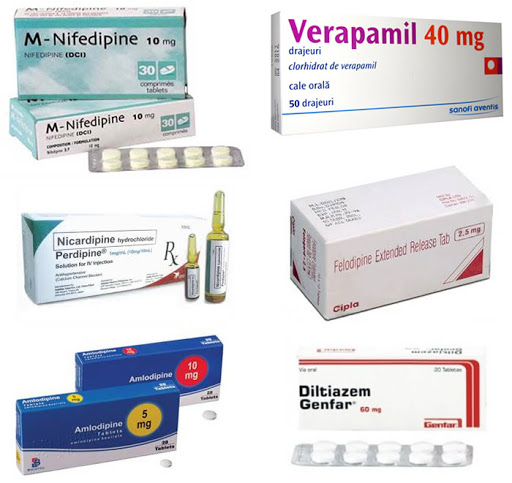MEDICINE ALERT! Study Led By Penn State Shows That L-Type Calcium Channel Blockers (LCCBs) Used To Treat Hypertension May Actually Harm The Heart
Source: Medicine Alert Jul 24, 2020 5 years, 6 months, 3 weeks, 1 day, 21 hours, 4 minutes ago
Medicine Alert: Pennsylvania State University researchers along with scientists from La Jolla Institute for Immunology-California and Weill Cornell Medicine-Qatar, have found that in rats and human cells in vitro, LCCBs cause changes in blood vessels known as vascular remodeling that reduce blood flow and increase pressure and could potentially lead to heart failure.

The study findings have been published in the journal:
Proceedings of the National Academy of Sciences (PNAS), the official journal of the National Academy of Sciences (NAS).
https://www.pnas.org/content/117/29/17369
Some examples of L-Type Calcium Channel Blockers (LCCBs) include: Amlodipine (Norvasc), Diltiazem (Cardizem, Tiazac, others), Felodipine, Isradipine, Nicardipine, Nifedipine (Adalat CC, Procardia), Nisoldipine (Sular)
and Verapamil (Calan, Verelan).
By examining epidemiological data, the research team also found that LCCBs are associated with a greater risk for heart failure. The findings suggest that care should be taken when prescribing these drugs to patients, particularly older adults and those with advanced hypertension.
Dr Mohamed Trebak, Professor, Department of cellular and Molecular Physiology, Pennsylvania State University told Thailand Medical News, “In America alone, nearly half of all adults or just over a hundred million have hypertension, and its prevalence is increasing; worldwide, the condition is expected to affect 1.56 billion people by 2025."
He added, "L-type calcium channel blockers are one of the most widely prescribed drugs to treat hypertension, yet we have found that these drugs may cause the same type of damage they are intended to prevent."
Dr Trebak explained that vascular smooth muscle cells (VSMCs) make up the walls of blood vessels, where they help the vessels to control blood flow by contracting and relaxing. This activity is regulated by the concentration of calcium within the cells. VSMCs contain numerous calcium-permeable channels to control this calcium concentration.
It was observed that under conditions of hypertension, these channels allow too much calcium to enter VSMCs, which triggers the cells to undergo physiological changes, known as "remodeling," and to divide and proliferate. These remodeled, proliferative cells cause blood vessel walls to thicken and stiffen and blood pressure to rise.
Dr Trebak added, "L-type calcium channel blockers were created to prevent this from happening. Yet, we found that these drugs also simultaneously cause remodeling and proliferation of VSMCs through another mechanism."
In order to investigate the specific mechanisms by which LCCBs affect VSMCs, Dr Trebak and his colleagues used optical, electrophysiological, and molecular tools to examine smooth muscle cells in vitro and in rats.
The study team found that calcium entry into VSMCs is mediated by stromal-interacting molecule (STIM) proteins activating ORAI calcium channels and that chronic exposure to LCCBs causes these STIM proteins to become overactive, which triggers VSMCs to proliferate.
Furth
ermore upon examining epidemiological data from the Penn State clinical database, the researchers found that incidences of heart failure were significantly higher in hypertensive patients treated with LCCBs than in hypertensive patients treated with other types of hypertension medications.
Dr Trebak further added, "Treatment with LCCBs is clinically associated with elevated incidence of heart failure, which prompts a careful examination of the use of LCCBs during chronic hypertension where vascular remodeling is evident. Extra care should be taken when hypertensive patients present with COVID-19, as LCCBs may exacerbate their vascular damage.”
Thailand Medical News recommends that any readers currently taking of L-Type Calcium Channel Blockers (LCCBs) for high blood pressure (hypertension) to not stop taking them abruptly but rather to consult their doctors immediately to seek alternatives or to discuss their conditions and risk of taking these drugs.
For more
Medicine Alerts, keep on logging to Thailand Medical News.
